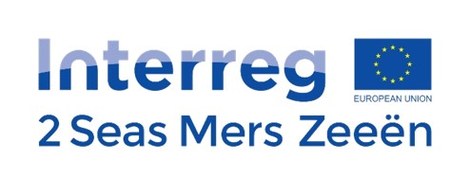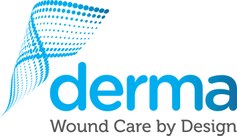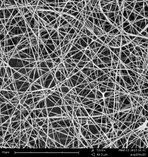Interreg 2 Zeeën - DERMA
Interreg 2 Zeeën

The DERMA project (Design of Enabling Regenerative Materials) has received funding from the Interreg 2 Seas programme 2014-2020, co-funded by the European Regional Development Fund. This program facilitates cross-border cooperation between England, France, the Netherlands and Belgium (Flanders). DERMA will address the common challenge of improving the quality of life of the increasing elderly population of the 2 Seas area.
Description of the project
By 2025, more than 20% of Europeans will be 65 or older, with a large increase in those over 80. We will tackle the problem of advanced age (or illness) associated inflammation, infection and ulceration of the skin which costs the EU €6.5 billion per year. Dermal ulcers are a source of physical discomfort, can lead to further medical complications, and can liberate offensive odours that are distressing to the patient and may lead to social isolation and depression. The objective of DERMA is to develop new interventions for the management and treatment of dermal ulcers and related skin conditions, including stomas. By addressing market and patient needs, as identified by our Observer Partners (OPs), the project will deliver advanced new technologies (incorporating marine sourced biopolymers) ready for exploitation by industry to manufacture improved products for the treatment of patients. It is expected that these enabling technologies will provide cost savings to the EU by improving the efficiency and success of wound management by healthcare providers.
Objectives
These are the objectives of DERMA:
- Objective 1: Design, construction and evaluation of a prototype odour-adsorbing, antimicrobial wound dressing
- Objective 2: Design, construction and evaluation of a prototype wound dressing with diagnostic capability to indicate wound status
Role of Ghent University
The Polymer Chemistry & Biomaterials Group (Profs. Peter Dubruel and Sandra Van Vlierberghe) is joining forces with the Department of Plastic and Reconstructive Surgery (Prof. Stan Monstrey) towards the development of enabling technologies for improved wound management. UGent will select and develop the wound dressing building blocks. In addition to polymer synthesis, UGent will also perform the functionalization of biopolymers with crosslinkable and/or odour-adsorbing moieties followed by an in-depth physico-chemical characterization. The materials developed will be processed through co-extrusion electrospinning. UGent will also contribute to the design and development of smart wound dressings with diagnostic capabilities.
Contact
Profs. Peter Dubruel and Sandra Van Vlierberghe
Department of Organic and Macromolecular Chemistry
Phone number: 09/264.44.66
E-mail: Peter.Dubruel@UGent.be, Sandra.VanVlierberghe@ugent.be
Website: www.pbm.UGent.be
Twitter: @PBMUGent


